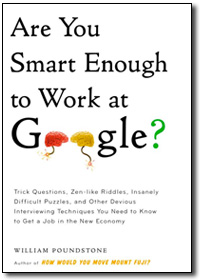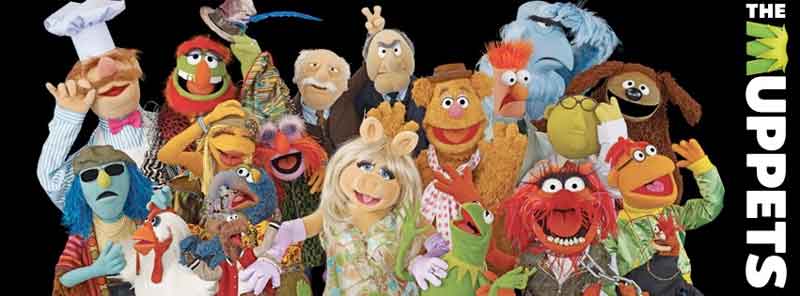
In 1965, basketball player Wilt Chamberlain became the first NBA player to earn $100,000 in salary. But that didn’t sit well with Bill Russell, who had already led the Boston Celtics to 8 championships in the previous 9 years. As the story is told, he went to the team and demanded a salary of $100,001, which he promptly received.
If only asking for and receiving the salary you wanted could be that fast and easy.
The length of time to find a job fluctuates with the economy
If you’ve been job searching for some time, then you already know the frustration it can bring.
- The average time it took an unemployed worker to find a job fluctuates, from 22 weeks in 2022 to a whopping 39 weeks in 2012 — nearly 10 months — to an average of 16 weeks in 2002. (Bureau of Labor Statistics)
- The average length of the interview process has nearly doubled from 12 days in 2009 to 24 days in 2022. (Glassdoor)
- Candidates are now often subjected to five, six, or even seven or more rounds of interviews before companies finally make an offer.
- The New York Times reports that employers are fearful of hiring the wrong person and are waiting for perfection.
But once you DO beat out all the other candidates and are told you’ve got the position, the game is finally over, right?
Not so fast. I’ve seen two examples where people find out that’s not always the case.
Case Study 1: Susan
My client “Susan” was laid off in November. Fortunately, she was forward-thinking and had seen the writing on the wall, so when she reached out for negotiation help, she already had her next job lined up. But looking back at our timeline, it’s a little bit disturbing:
- December 5: She was told, “You should know something by the end of December”
- December 17: The company blames the holiday rush, “We need more time”
- January 29: Weeks pass before she has call to talk salary; we map out a strategy
- February 5: “You should know something by Friday”
- February 18: “There’s been some leadership changes, can we meet after the 25th?”
- March 6: “You should know something by Friday”
On March 7, things got REALLY interesting.
She was in a crowded restaurant and overheard her name mentioned at a table nearby. She elbowed her husband to shush and listen in, and it ended up being someone in management at the company she was interviewing at.
They were complaining that, because their company took so long to hire people, they always lost good candidates.
It had become a topic of public conversation!
- March 10: She received a verbal offer. But we all know what that’s worth, right?
- March 22: Finally — FOUR MONTHS from her initial interview — she finally signed an official, written offer. Insane.
Case Study 2: Linda
Another client, “Linda,” had a similar story. She interviewed in late January, the company gushed about how much they wanted her, but kept dragging things on for weeks on end.
After nearly 2 months of indecision, another offer fell in her lap and she had to abandon the previous opportunity — which she would have preferred — just because she couldn’t afford to wait any longer.

So what can you do about the long wait?
I’ve written about The Simple Sentence You Need To Say at the End of Your Interview To Make Your Job Search Less Stressful, but here are 3 major tips:
1) Watch your attitude
The first thing you need to do is get your own psychology in order. From the moment you are laid off or decide to pursue an opportunity, know this:
The process is going to take much, much longer than you think.
At every turning point… applications, interviews, negotiation, and offer, get it in your head:
- There WILL be delays
- There WILL be rescheduled meetings
- Assume that things will take double or triple the amount of time
Then, if things do work out a bit faster, you’ll be pleasantly surprised.
2) Watch their attitude
As the hiring team comes back to you with delay after delay, keep a close eye on their communication and try to read between the lines.
- In some unfortunate cases, yes, a company might be leading you on. Maybe there’s not even an official position open, and they’re just testing the waters to see what’s out there. If they keep you in the dark, don’t communicate well, and are vague in their answers, it might be best to move on. In the most frustrating cases, despite seeing dozens of candidates or even being told you’re a finalist, at the end of the entire process you discover that the company decided not to hire anyone at all.
- In Susan’s case, the delay seemed to stem more from bureaucracy, not malice. It was a giant, old-school company, and the conversation she overheard confirmed that not only were candidates frustrated with the delay, but managers within the company as well. She was able to keep her eye on the prize and know that it was the system that was the problem, not her or her future managers.
- In Linda’s case, she asked me if she should make an ultimatum to the company and force them to give her a date that they would make a decision. My advice below.
Should you make an ultimatum when waiting for a new offer? Answer these three questions:
- What is your current situation? Are you out of work and desperate for money or do you hate your current job so much that you need to get out immediately?
- Do you actually like the new company and want the job?
- How are they handling the situation?
For Susan, here’s what she said in response to those three questions:
1) “Well, my current job is fine. There isn’t a pressing financial crisis or issue in the workplace, so I’m OK coasting along for a bit longer, but it it’s definitely time for me to make a change soon.”
2) “Yes, I really do want to work for this new company.”
3) “The emails from the company feel very, very genuine. They keep emphasizing how much they want me for the position, apologize for the delay at every turn, and explain thoroughly that they are reorganizing their structure internally, and it makes sense for them to wait until that plays out before bringing her in.”
After hearing that, I definitely recommended against giving an ultimatum. After all, what good would it do?
While I understood that she was getting impatient, she could remain at her current job a bit longer and see how things played out. I actually turned the tables and said it could be an advantage … that maybe it’s a good thing that the company is trying to sort things out before she arrives, vs. bringing her into a chaotic situation with lots of changes right off the bat.
3) Keep your options open
By far the number one thing a job-seeker can do is to relentlessly keep pursuing new jobs right up until the moment you sign an offer. When you only have one option, you start to obsess about that one option.
- Even if the company tells you “you’re our top candidate.”
- Even if they say “you’ll definitely have an offer by Friday.”
- Even if they are extremely apologetic and say that everything will be resolved very shortly.
The best course of action is to keep the pipeline flowing.
- Keep networking
- Keep applying to new jobs
- Keep your options open
Keeping your options open will result in 3 things, all of them positive:
- If the first company comes through, great, you got the job! At least you were keeping busy and not obsessing about it the entire time.
- If the first offer falls through, then you’re not starting up your job search again from scratch — you already have things in the pipeline.
- And finally, the best scenario. If you keep your options open and receive an offer from a new company, now you have increased leverage. It’s at this point that you can go back to the first company and press them for a date a decision can be made. You now have two choices for your next career move, which lets you more effectively negotiate your salary.
In the end, both candidates ended up happy. Susan kept an even keel as she sailed the wave of red tape for several months, and is now loving her new job, while Linda ultimately moved on to the next company since the first one still wasn’t ready to act.
While the entire process might not be a slam dunk, if you’re patient and keep your eye on the prize, hopefully you’ll end up happy in the next stage of your career, and making at least a little bit more than the next guy.
Note: A version of this article first appeared in a post for Salary.com.



